- Home
- Dustin Stevens
Office Visit
Office Visit Read online
Office Visit
My Mira, Book Two
Dustin R Stevens
Office Visit
My Mira: Book Two
Copyright © 2018, Dustin Stevens
Cover Art and Design: Paramita Bhattacharjee, www.creativeparamita.com
Warning: All rights reserved. The unauthorized reproduction or distribution of this copyrighted work, in whole or part, in any form by any electronic, mechanical, or other means, is illegal and forbidden, without the written permission of the author.
This is a work of fiction. Characters, settings, names, and occurrences are a product of the author’s imagination and bear no resemblance to any actual person, living or dead, places or settings, and/or occurrences. Any incidences of resemblance are purely coincidental.
Contents
Prologue
Chapter 1
Chapter 2
Chapter 3
Chapter 4
Chapter 5
Chapter 6
Chapter 7
Chapter 8
Chapter 9
Chapter 10
Chapter 11
Chapter 12
Chapter 13
Chapter 14
Chapter 15
Chapter 16
Chapter 17
Chapter 18
Chapter 19
Chapter 20
Chapter 21
Chapter 22
Chapter 23
Chapter 24
Chapter 25
Chapter 26
Chapter 27
Chapter 28
Chapter 29
Chapter 30
Chapter 31
Chapter 32
Chapter 33
Sneak Peek
Thank You
Free Book
Bookshelf
About the Author
No one is so brave that he is not
disturbed by something unexpected.
—Julius Caesar
Prologue
In an instant, I have a decision to make.
My first instinct is to run. Not toward safety, not to break free from certain danger, but rather to head straight into it. To put my head down and charge toward what I’ve spent the last several days questioning, will no doubt spend the rest of my years trying to fully make sense of.
I have no way of knowing exactly what that is right now, the questions and seemingly disparate facts too great for any one thing to answer them all. What I can be certain of is that the men currently tearing away in the other direction have at least some of the answers I’m looking for.
And with them a new bearing on my continued search for what happened to my wife.
Standing on the narrow expanse of the front porch, they are nothing more than shadows. Striding down the far end of the street, they have moved beyond the few cones of halogen light being tossed downward from the security stanchions. Little more than the swinging tails of their vests, I watch as they sprint without looking back, arms and legs all churning as hard as possible.
Nerves pulled taut, I have to fight my every inclination to remain standing still, to not go tearing after them. Given such a head start, it is unlikely I will ever catch up, but every part of me wants to at least try.
For my own catharsis as much as any help it might lend in helping to unravel the story before me.
A half-step is as far as I make it, though. One moment, my knees are bent, my body leaning forward, ready to shoot forward as if fired from a gun. The next, I let the tension bleed away.
I have a greater need right now.
Shifting my attention back inside, I move through the doorway and drop to a knee. I place both hands on the chest of the person before me, spreading my fingers wide. Blood drips from my chin, spotting the crisp white dress shirt under my palms, as I open my eyes wide and draw in a deep breath.
“Come on, now,” I say. “You’re okay. Just stay with me now, and breathe.”
I draw in another breath, releasing it slowly and loudly.
“Just have to calm yourself down. Breathe.”
Chapter One
I don’t know if it is new or if in my heightened state of awareness I’m just now noticing it, but there is a faint buzzing sound in the office that I can’t seem to ignore. Steady and persistent, it is as if the world’s largest bee has taken up residence right behind my skull, moving back and forth in a steady three-inch flight path.
It does little to enhance my mood, making it all the more difficult to keep my gaze neutral as I stare back at Lieutenant Commander Lisa Botkins.
Aside from the buzzing, not one thing is different from our previous visit. She is again dressed in a tan uniform, her hair curled behind her ears. Her wide-set eyes have a few faint lines under them, more a result of her forty or so years on this earth than from any amount of late night carousing.
Leaning forward at the waist, her elbows rest on the desk before her, her fingers laced just inches from her chin. This being our second such forced interaction – mandatory psych counseling a part of all active personnel looking to get out of the Navy – she is still wearing a smile, trying to portray us as friends.
Something tells me by about the fifth visit or so, the pretense will have dropped. Like the stages of a relationship, that will be the part where people feel like they’re starting to get comfortable and no longer need to trot out a representative in their stead.
What hers might look like, it’s still too early to speculate.
“Don’t keep me in suspense,” she says, donning a smile, “how was your first weekend of freedom?”
Every part of the statement is loaded to the point it is practically dripping. The first half – and the manner in which it is delivered – is to give the impression of our being pals. The second half is meant to get me to divulge something on how I feel about my time in the service, wanting me to make a statement about being chained up, or pent in, or some other such foolhardy admission.
To the point that I feel like I should be the psychiatrist in the room for a moment and point out that it isn’t generally that savvy to try and place tripwires before a Navy SEAL that has been trained in how to avoid them.
“It was nice,” I reply. Nothing more.
The weekend was anything but nice. It was a snapshot of my own personal hell, far worse than anything the government had ever sent me into.
Worse yet than anything I would have ever even imagined possible.
Describing it as freedom is a word choice that borders on cruelty. There is no way she can know what happened, what I’ve been through, but it doesn’t stop the bitter irony from settling in around me.
Losing my wife, my partner, my confidante, my future, my everything, in one quick and senseless act was about as polar opposite of the notion of freedom as I can imagine. In just an instant, it plunged me into an interminable guessing game, nothing but scads of questions passing through my mind and no possible way of answering them.
“Yeah?” Botkins asks. “Anything good? Big celebrations?”
Maintaining her stance across from me, the expectant half-smile in place, if I didn’t know better I would say she is goading me. Practically staring across, bating me into saying or doing something foolish.
Right now, she doesn’t know about Mira. No details have been released yet, and Mira’s family and I are in no hurry to begin making arrangements. Unless Botkins spoke directly to one of my friends here on base, there is no chance she has a clue what happened.
And, for a variety of reasons, I know there isn’t a chance in hell that happened.
“Not really,” I say, trying my best to return the smile, no matter how awkward it feels. “We’re a pretty low-key bunch, so a small thing with friends.”
She continue
s giving me the expectant look, and I realize I need to give her something. Playing run-rabbit-run was okay a week ago, when I had nothing to hide, but simply didn’t want to be here. Now, I’m going to have to play the part a bit more if I don’t want her applying any extra scrutiny.
And I have a feeling I’ve got plenty of that – or soon will, anyway – already coming my way.
“Felt good to sleep in,” I said, lifting my palms toward the ceiling slightly. “Watched the Beavs get hammered on Saturday, went to Little Italy for the farmer’s market.”
A crease appears between her brows. “The Beavs get hammered?”
“Oregon State Beavers,” I reply. “Our alma mater. Great baseball and racquetball programs, not so much on the football front.”
“Ah,” she says, her eyebrows rising as she rocks her head back slightly. “Still fun to watch, though?”
“For sure. This time of year I get a bit nostalgic, fall colors and all that.”
“I hear you,” she replies. Pointing a finger at herself, she retreats back into her seat and says, “Illinois girl, originally. The sunshine here is wonderful, but sometimes I do miss the seasons.”
The buzzing in the room continues as I nod, trying to feign interest. I don’t care where she’s from or what she’s missing, but at the very least she seems to be buying what I’m peddling, unaware that I had to check the sports page this morning to find out what the score was. I haven’t been to a farmer’s market in months.
“For sure,” I manage.
Leaning back, she glances to the window, staring out at more of the very sunshine she was just mentioning. A look bordering on wistful crosses her features as she looks out before sighing and turning her focus back to me.
“So what happened to your hand? A rogue rutabaga get ahold of you at the farmer’s market?”
My entire chest seems to constrict tight, the buzzing around me growing louder. For a moment, I am unable to draw in even a single breath, staring back at her, forcing my face to remain impassive. The question was delivered without malice or even any amount of deviance, though the intent belying it is clear.
She’s not entirely believing me.
Shifting my gaze down to my right hand resting on my thigh, I twist my knuckles up a few inches, glancing at the dime-sized scabs over the middle and index joints and the faint blue bruising extending out away from them. Two days ago, both looked infinitely worse. Even for someone with as much training as myself, the hands are just not built for the abuse of repeatedly striking a solid surface.
One such as the face of the man that killed my wife.
“Ha!” I say, an uneven smile finding its way to my mouth. “That would be from a failed attempt at some basic car maintenance.”
Looking up, I can see the same look of mild skepticism on her face.
“Turns out the wife had a much longer honey-do list in store for me than I realized.”
“Yeah?” she asks, a single eyebrow rising slightly. “And what other forms of physical harm might be waiting on that list?”
Chapter Two
“Good morning, sir, your twelve o’clock is here and waiting for you.”
The words make Myles Morgan pause mid-stride. Not enough to come to a complete stop, but enough that there is a noticeable change in pace as he slows alongside his secretary’s desk.
“Waiting for me?” he asks.
“Yes, sir,” she replies, glancing from her computer screen up at him. The reflection of it flashes across the lenses of her glasses, displaying that once again she is reading People magazine online instead of doing her job. Or doing anything that might be construed as productive.
And people want to keep complaining that millennials unfairly get a hard time.
“She said you were expecting her and went on back to your office to wait.”
The list of people that would feel emboldened to do such a thing is preciously short. Of those that would necessitate the pronoun she, Morgan can think of only a single one.
“Okay, thanks,” he mumbles, resuming his previous pace.
A hundred times before, she has been told never to allow anybody into his office when he isn’t present. The thought of adding another admonishment crosses his mind, dismissed just as fast, knowing it will do no good. Right now, she is neck deep in whatever celebrity romance is currently occupying the most talking space, likely not to hear a word he says anyway.
If not for the fact that she is the niece of someone whose favor he’d rather maintain, she wouldn’t have gotten the job to begin with.
Stepping through the small reception area outside his office, Morgan’s feet fall silent against the padded carpet. Walking through the door standing wide, he shifts the paper sack and drink he has procured for lunch into his left hand. Using his right, he shoves the door closed, the wood slamming home, reverberating through the space.
Louder than intended, though not a message he is sad to have sent in the slightest.
“Good afternoon,” a saccharine sweet voice says from the lone visitor chair positioned beside his desk.
Feeling his eyes slide shut for a moment, Morgan grits his teeth. “Is it?”
“Now that hurts my feelings,” Elsa Teller says. “And after I’ve come all this way to see you.”
Remaining rigid a moment, Morgan pushes out a slow breath. He releases the tension in his jaw one measured bit at a time before turning to his desk.
Around him, the office is exactly as he left it just a half hour before. Everything is done in black marble or glass, all hard lines and clean edges. The definition of a modern working space. Even his desk has adjustable legs, making it possible for him to turn it into a standing workstation should he ever feel the need.
Not that he ever foresees that happening.
At fifty-one, he has resigned himself to certain realities. Never has he been an especially fit man, so there is no point in trying now. Same for the thick mane of hair that started to grey in his thirties, a battle he fought for a decade before deciding to let nature run its course.
“Popeye’s,” Teller says. “And here I would have pegged you as a strict salad man.”
Setting his sack down, Morgan lowers himself into his chair. He lets his eyebrows come down low, looking across his desk in a glare as he places his large soda down beside it.
Despite the call of both items radiating toward him, he leaves them be for the moment.
“Why are you here?” he asks.
Again, Teller offers a faux gasp, as if she is mortally offended. She raises a full slate of manicured nails to her bright red lips, the colors a stark contrast to her platinum blonde hair. She is wearing a sleeveless royal blue dress with matching pumps, one leg crossed over the other.
The first half-dozen times they had been in the same room together, Morgan had found it impossible to keep his eyes off her. To the objective onlooker, she was a stunner, a head turner of the highest order.
Not until much later, once he’d actually gotten to know her and the very unique role she played, did his distaste for her and everything she represented really blossom.
Holding the pose for a moment, acting as if she gives even the slightest care as to what Morgan thinks of her, she eventually drops her hand away. With it goes any form of mirth on her face, her features slipping back into the same glacial stare he has come to expect from her.
“We have a problem,” she says.
Given the number of things she is currently working on, it is impossible to know exactly which potential problem she is alluding to. Not particularly wanting to extend the conversation any further than necessary, Morgan says, “And by we, you mean you.”
The icy stare remains for a moment, boring into him, letting it be known the insinuation is not appreciated.
“No,” she replies. “I mean we.”
Starting to respond, Morgan pulls up short. He rifles through the catalog of things she could possibly be alluding to in short order, his mind eventually settling onto a
single one.
“You mean...?” he asks.
“I do,” she says, cutting him off short, nodding for emphasis.
Confusion clouds his features for a moment. Two days ago, he had been given direct confirmation that it was done, everything had been concluded.
“But I thought...” he begins, his voice trailing off.
“You thought wrong,” Teller replies.
Despite the alluring aroma of fried chicken no more than a foot from his face, Morgan has lost all sense of appetite. His mouth is dry, his tongue like sandpaper as he works it around, trying to put things into place in his mind.
“But I thought she-“
“She is,” Teller interjects, “but that’s not the problem.”
Once more, Morgan pulls back for an instant. He runs through everything he knows about the operation, taking mere moments to scour through the thing from start to finish.
And just like he originally suspected, from where he’s sitting, the only thing that does seem to matter is that the woman is gone.
“Then what is?” he asks.
Sighing slightly, Teller rolls her eyes. It is a gesture Morgan has come to recognize as her unspoken way of letting him know she thinks he is a moron.
“She’s not the only one that seems to have disappeared,” Teller says.
The response does nothing for the dry feeling in Morgan’s mouth. Twice he tries to work through it, moving his lower jaw up and down, neither doing much at all to abate the bitter taste on his tongue.

 Liberation Day - A Thorn Byrd Novel
Liberation Day - A Thorn Byrd Novel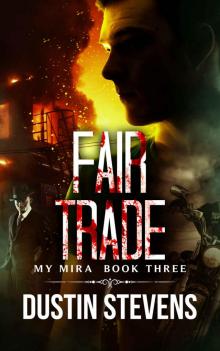 Fair Trade
Fair Trade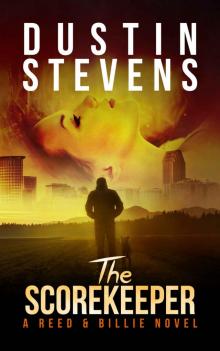 The Scorekeeper
The Scorekeeper Wild Fire: A Suspense Thriller (A Hawk Tate Novel Book 6)
Wild Fire: A Suspense Thriller (A Hawk Tate Novel Book 6) Ham
Ham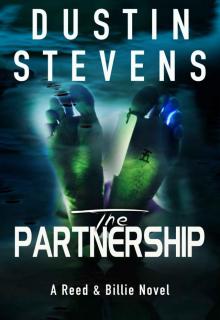 The Partnership
The Partnership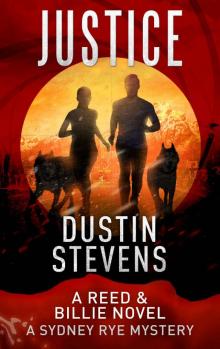 Justice
Justice The Subway
The Subway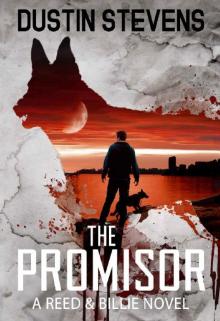 The Promisor: A Suspense Thriller
The Promisor: A Suspense Thriller Home Fire: A Suspense Thriller (A Hawk Tate Novel Book 5)
Home Fire: A Suspense Thriller (A Hawk Tate Novel Book 5)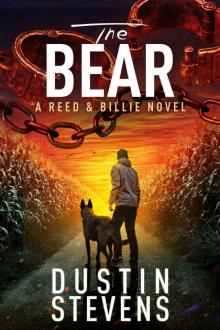 The Bear
The Bear Battle Cry
Battle Cry Warning Shot
Warning Shot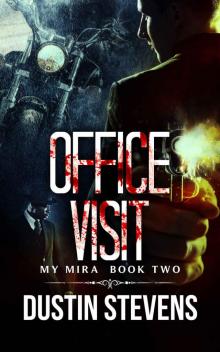 Office Visit
Office Visit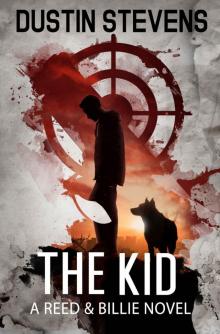 The Kid: A Suspense Thriller (A Reed & Billie Novel Book 3)
The Kid: A Suspense Thriller (A Reed & Billie Novel Book 3) Hellfire: A Suspense Thriller (A Hawk Tate Novel Book 4)
Hellfire: A Suspense Thriller (A Hawk Tate Novel Book 4) Motive ; One Last Day ; Going Viral
Motive ; One Last Day ; Going Viral The Subway ; The Debt ; Catastrophic
The Subway ; The Debt ; Catastrophic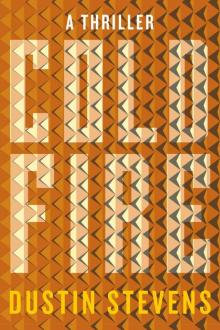 Cold Fire
Cold Fire Dead Peasants (Zoo Crew series Book 2)
Dead Peasants (Zoo Crew series Book 2) Thriller Box Set One: The Subway-The Debt-Catastrophic
Thriller Box Set One: The Subway-The Debt-Catastrophic The Boat Man: A Suspense Thriller (A Reed & Billie Novel Book 1)
The Boat Man: A Suspense Thriller (A Reed & Billie Novel Book 1) The Zoo Crew (Zoo Crew series Book 1)
The Zoo Crew (Zoo Crew series Book 1) Twelve
Twelve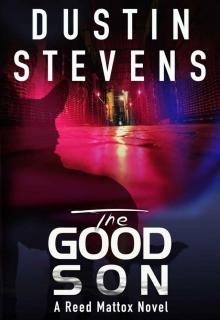 The Good Son: A Suspense Thriller (A Reed & Billie Novel Book 2)
The Good Son: A Suspense Thriller (A Reed & Billie Novel Book 2) The Boat Man: A Thriller (A Reed & Billie Novel Book 1)
The Boat Man: A Thriller (A Reed & Billie Novel Book 1) Scars and Stars
Scars and Stars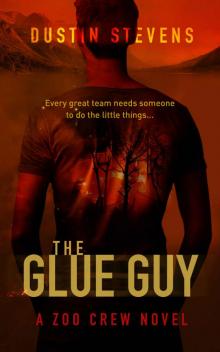 The Glue Guy: The Zoo Crew Series Book 4
The Glue Guy: The Zoo Crew Series Book 4 Four
Four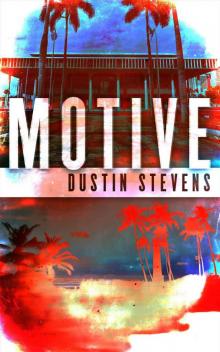 Motive
Motive 21 Hours
21 Hours Krokodil
Krokodil Ohana
Ohana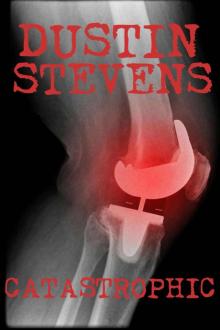 Catastrophic
Catastrophic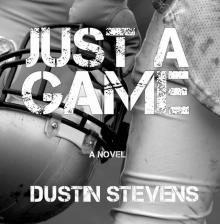 Just A Game
Just A Game Quarterback
Quarterback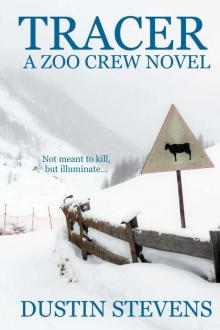 Tracer
Tracer Fire and Ice: A Thriller (A Hawk Tate Novel Book 3)
Fire and Ice: A Thriller (A Hawk Tate Novel Book 3)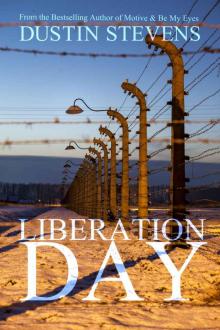 Liberation Day
Liberation Day